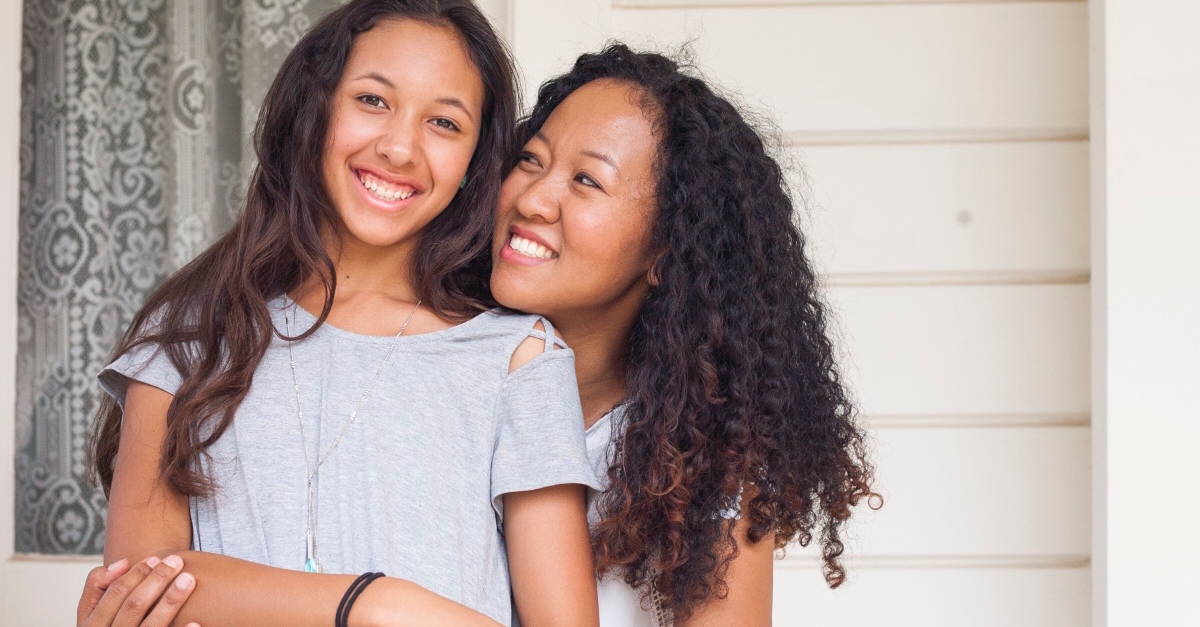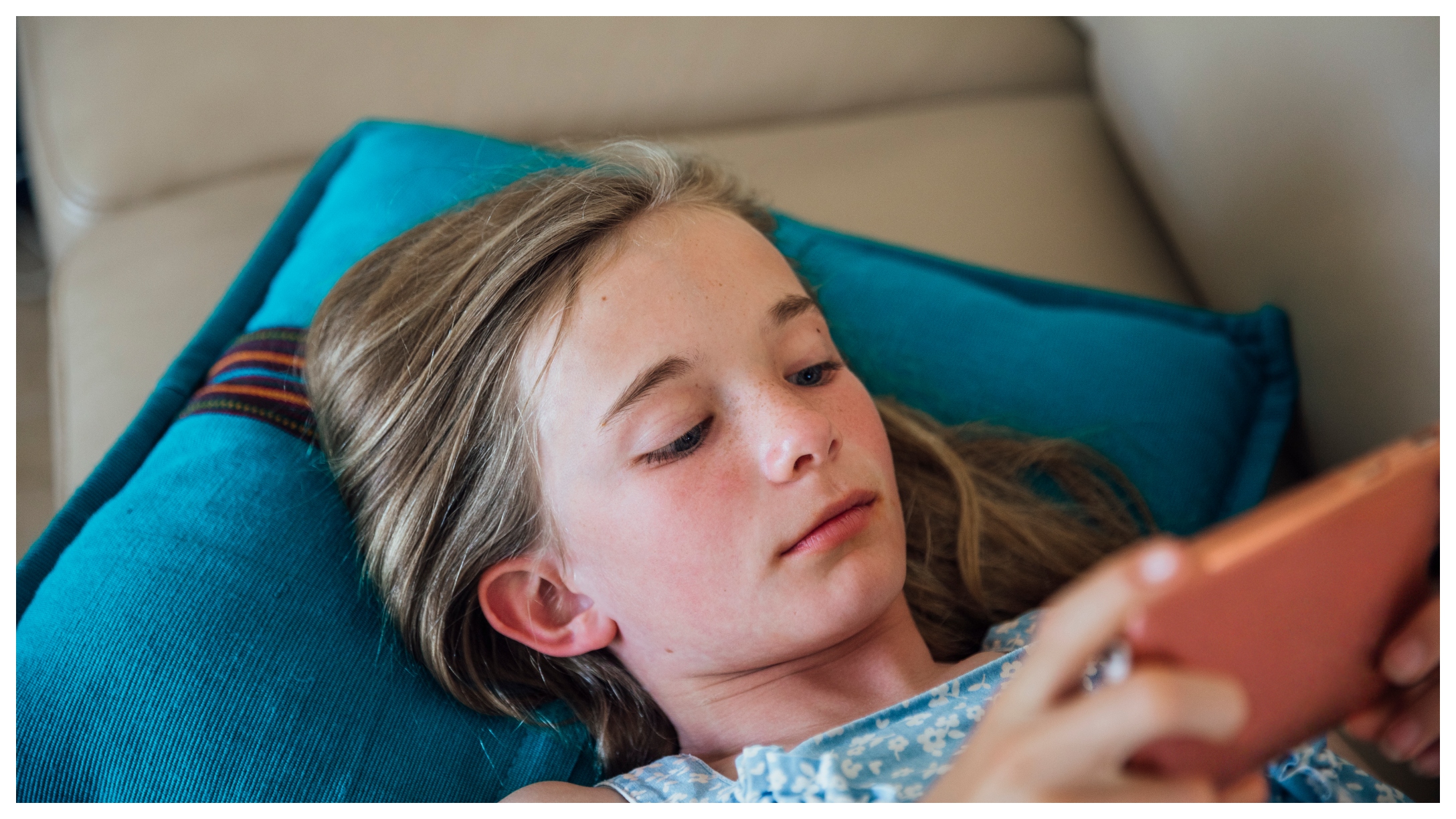
The most important part of parenting is emotional connection, according to Amanda Craig, PhD, LMFT, and author of Who Are You & What Have You Done With My Kid? Connect With Your Tween While They Are Still Listening. According to Act for Youth, “Generally speaking, the type of family structure matters less to a child's development than family relationships and stability,” and their relationships can impact connectedness and their health.
Craig, who has a 6-year-old daughter and 13-year-old son, tells LittleThings, “When kids do not feel connected, over time, they fear parents won't be there when they need them. They feel insecure about if they are lovable and people will like them. Or they may wonder if they are doing good enough to be loved and cared for by others. In this spirit, as they grow up, they worry in relationships, they worry about people's intentions and aren't as self-assured.”
More from LittleThings: Here's What The Experts Have To Say About Teaching Tweens To Spend Money Responsibly

Parents of tweens in particular face unique challenges. “Tweens tend to become more emotional, more self-focused, unsure of decisions one minute then obstinate the next, more moodiness, more interest in and influence from peer groups, less affection towards parents, rude and short tempered,” says Craig.
She points out that there are four significant changes in tweens: Their brains are changing, so they feel and experience emotions they haven’t recognized before, they’re hyperaware of themselves, they do not know how to express themselves, and they lack critical thinking ability and the language to explain things they think and tell, so they can act strangely.

“As confusing as this can be for us as parents, the perfectly logical, science-based reason for all this is their brain is going through massive changes,” says Craig. “If we do it right, it’s a chance for us to help shape our tween’s brain, their habits, and our relationship with them in the way we parent. Suzie goes from the sweet 10-year-old who adored her parents to the back talking, hiding in her room, wanting to dye her hair pink. It makes sense! It’s OK; she is trying on her ‘outfits’ to find out who she is. If we can give them space that doesn't put them in danger, we can offer them space to find their strengths, gifts, curiosities, and purposes.”
Craig says, “The comment I get often from parents is, ‘My kid is doing this or that to me on purpose to push my buttons.’ No, they aren’t. They are way too confused and egocentric to think about you that deeply, and they have no wisdom to think through the buttons you have that they can push. Kids push our buttons because we have buttons. They have no idea what they are pushing.”

This brings another parenting challenge: not taking those things personally. Craig says, “As tweens go through the aforementioned changes, the kids’ behaviors tend to trigger the parent’s own personal issues. I remind them not to let their own ‘soil issues’ (things that bubble up from their own childhood) cloud how they address the present situation at hand with their child.”
Behaviors of concern in tweens can include a change in mood, negative self-talk, lower energy than usual, and behavioral changes like dropping out of activities they used to like or picking at their food.

“If you see mild signs of any of the above in your tween, start by asking questions in a gentle, caring, curious way,” says Craig. “Find out if they will share their feelings, worries, things that are bothering them, emotions they feel they can’t get past. Also see if you can brainstorm together ways to cope with their struggles, ways to use their voice to be assertive, and discuss when you as a parent should step in.”
Early intervention is important, and parents can take steps to teach their tween good habits that will grow over the test of time, according to Craig.

“Kids are smart and intuitive. I often tell parents, kids see a parent's tension, stress, worry, anxiety, fears, alcohol abuse, and depression. They may not know what to call it or how to put words to it or don't feel it is safe to talk about, but they sense something is wrong. When we can name it for our tweens, we give them a sense of security. We tell our tweens, ‘I will be honest with you.’ In fact, when we fib or stretch the truth, kids often know and feel unsure about our motives and intentions. Instead, we want them to know, ‘I will help explain the world around you in a way that you will understand versus have to learn again.’ We build trust. A great example is a parent who is justifying their alcohol use. A tween may see every night the parent drinks and their behavior changes. The parent minimizes their drinking. Later, as a tween grows into teen years or even older, they realize the drinking was a problem. Now there is a betrayal.”
Craig continues, “When parents are honest, we also tell them, ‘You intuitively knew something, and you should trust your intuition.’ When a tween says to us, ‘Why are you mad?’ and we parents are yelling and say, ‘I'm not mad,’ they start to question if they have good intuition. They start to feel unsure about their decision-making skills. They start to hold back. We want to teach them how to trust their intuitive nature and use it to make decisions.”

Lastly, Craig says, “We invite them to talk with us and other people in their life about tough topics. We want our kids to know what it is like to have tough conversations, to set boundaries with others, to assert their needs and drive towards things that are important to them. We build this quality in them by giving them experiences where they share tough thoughts and feelings and have a good experience. Open communication is sharing the tough conversations. And tough conversation are better than avoidance or anger outbursts.”
To create a fully formed emotional connection with your tween, Craig stresses the need to set boundaries. “Boundaries are a teaching tool and build important life skills such as delayed gratification, self-discipline, and decision making,” she says. “They give us space to talk about the behavior we aim to instill and why it matters. They are about our relationship with our tween, not control. Boundaries assume we are both humans that deserve respect. We model respect, we are more apt to get it in return.”
Before parents set boundaries, Craig recommends they set the following in place:

1. Make time and space to hang with our kids.
“When we are just available, and have the time for them to be with us, share their ideas, hear what is going on in their life, they know they matter.”
2. Get to know them on a deeper level.
“The idea here is to really know who they are, how they feel about things, and help them work through tough situations (not fix it for them). When they feel our empathy, they will pay it forward to others. When they learn to have emotional awareness, they can then learn emotional regulation. It sets them up to be a good friend and romantic partner … later.”
3. Make sure they know you are there for them.
“Time as a family or mother-daughter or daddy-daughter or son and mother, etc. offers time to be part of something bigger than an individual going at it alone in the world. It says people have our backs and will be there when we need. Having rituals and traditions creates memories; laughing and play are fun and bring joy to our lives. This also means adding people outside our family to their network. This is other adults we respect to be there when they need an adult opinion. And let's not forget the bigger world — we want them to be exposed to and experience people different from us. When they do, they will learn how to interact with people not like them, and they will know the value. And when they are older, they will invite all to the table because they will know the value in diversity.”
“Our past is our soil — complete with the good earth (there’s always some of that) and any unaddressed ledge, water, or contamination issues,” explains Craig. “As we get older and new experiences pile on — the daily demands of our lives, the challenges, traumas, and triumphs — our soil shifts. For better or worse, it is the foundation from which we parent and build our own families. It determines how we mold our tween to respond to and process their life experiences and relationships. Not only do we ‘raise our tween,’ we establish their soil, present always in their memory and nervous system no matter how old they get, just as it is for us. You see, our history doesn’t stay in the past, it may lay dormant and seem unimportant — for years. Until we have families of our own. And then the soil on which we are building our family is revealed — in our feelings and behaviors toward our partner and our kids. We must self-examine and learn from our past to be the present parent we want to be.”







